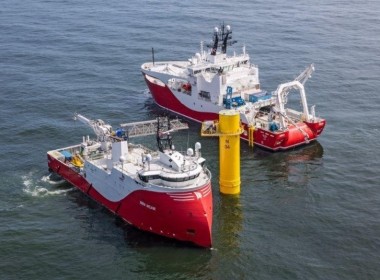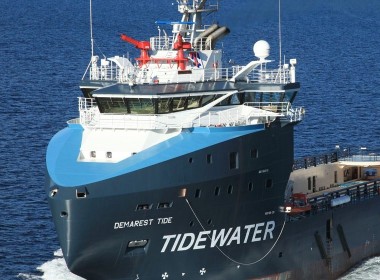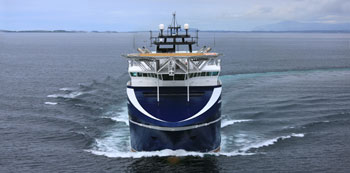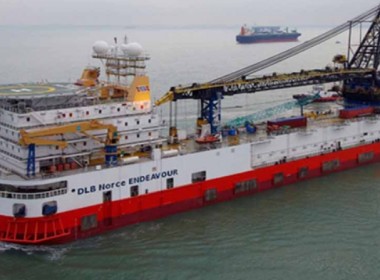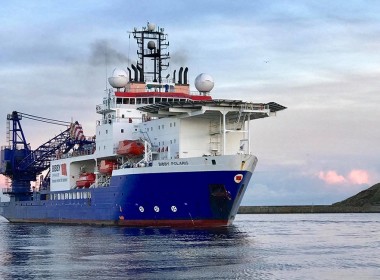LETTERS | CPD: buy the box then get the prize at the bottom?

A post by Russell Hodge [in response to a recent Offshore Accounts column by Baird Maritime‘s Hieronymus Bosch, ed.] led to an interesting article that expresses valid concerns about the Nautical Institute’s (NI) continual professional development (CPD) requirements. I’m going to disagree with it about DP skill fade. The article saw no evidence for skill fade and thought DP safety had improved, while I find the evidence of skill fade obvious, well documented, and common sense. The DP professional culture on some vessels used to be excellent, but there was always a problem in the lower, “Me, too” part of the market. With competition and change of environment, I now find basic problems on even dive and drill vessels. I don’t think that the number of DP incidents have gone down, I think that less and less of them are reported in an increasingly secretive industry that demands false perfection and prevents learning from problems.
Absence
Skill fade was proven in Keelson’s MTS DP Conference paper in October 2022. From my summary article: “Mat compiled his data from thousands of tests and they showed what we feared. Trained and certified people, who have gone through all the externally imposed hoops and been operating ships for years, have basic misunderstandings of DP. Mat notes that continual training closes these gaps and the results last for a while and build. He has the test results to prove it.” NI’s scheme was shown to be ineffective and NI needed to do something. This was demonstrated in October 2022 and by January 2023, NI presented a provisional solution: CBT. After all, Keelson’s scheme worked. NI might not have thought the new fees unreasonable, if another hypothetical body was selling fake engineering degrees and charging annual fees.
The problem
Modern DPOs are hampered by improvements in equipment, training, and certification. This might seem counterintuitive, but let’s have a look.
Less failures, more problems
When equipment failures are common, DPOs needed to correct problems and could do so reliably, because they knew not to trust the equipment, knew how to detect and distinguish each type, knew what to do, and were comfortable and familiar with solving the problems. Operators are still the basis of DP redundancy, but as the failure modes become increasingly rare, well-known, old faults can surprise a modern DPO or engineer, and leave them struggling to recognise and solve the problem.
This is a problem in many industries. Reliability has gone up, but the chance of severe failure has only slightly decreased. The only chance a DPO gets to see some of these failures is during annual trials (which should be training) and that is usually rushed and abbreviated. Simulators don’t help with this, as the simulated vessel is usually different from the real one.
Professionalism
This gets us to the fundamental problem of training. Everyone used to know that external training was a good start, but real training took place on board. DPOs used to train each other on the specifics of their vessel and its operation. Companies did the same. Generic tools and knowledge were a good start, but real application is where the learning counts, and the real job is always more complicated than generic guidelines.
New DPOs were taught professional pride, attention to details, and equipment, vessel, and operation specifics by example and encouragement. The DP professional culture made the system work, not external trainers, who made money by putting lots of people through a classroom. Anything that tears down that culture endangers safe operation. It is something that needs built, reinforced, and encouraged.
Theory vs. practice
When the classroom people are also the people that control who is certified to work in the industry, there tends to be an overemphasis on classroom learning and certification. It tends to emphasise top-down control and classroom training, as that is the only thing that they are in the position to control and sell. This isn’t necessarily dishonest, they are trying to sell win-win solutions, but “when your only tool is a hammer, everything looks like a nail.”
We have all known people who are good on paper and useless in reality, and people who are officially unqualified but perfect for the job. NI knows there is a problem, and they are trying to solve it with the only tool they have. I think that they can do better.
Metaphor
I have previously argued that certification can be a problem in some industries. The Cracker Jack school of certification is not a good model – you buy the box, consume the contents, and get the prize at the bottom. Doing this annually isn’t much of an improvement.
When the certification is worth more than the skill, knowledge, and experience, there is a problem. When a test, payment, and certificate, outweigh daily striving for improvement, there is a major imbalance. Again, this is the only tool that they currently use. People who have bought the box are more qualified to do the work, than people who know how to perform the work.
Prize
This is one of the roots of skill fade – the skills are worth less than buying the prize. It is hard to maintain professional pride and culture in that environment. There are people who have noted that the only thing they really need is to buy the box, and think that they are qualified after doing so.
Some employers can’t tell the difference, and some don’t want to, because prize-holders meet minimum requirements and are cheaper than skilled DPOs and engineers. The prizes create rather than solve problems, unless strongly aligned with the needed skills, but the needed skills can’t be put into a small box.
Culture
Of course, the traditional solution to this top down inefficiency was workplace training, but how many DPOs are now prize-holders rather than skilled DP professionals? Can prize-holders become motivated to become DP professionals? I think that most can, but some will go.
People who are good at classroom tasks are not necessarily good operators, and the opposite is sometimes true. Most people want to do a good job. Those who don’t should not perform safety-critical DP. I would prefer a return to trials and survey as training opportunities, and to encourage DPOs and companies to develop a strong DP professional culture on their vessel.
Teeth
This is where we run into another couple of obstacles – top-down management culture and costs. There is barely time for mandatory trials, surveys, and maintenance, so how is it possible to squeeze training into them? Of course, each of those costs is actually an investment with hidden payoffs. That’s a fine argument for the smart operators, but not great for short-sighted ones, so any decent training program should incorporate trials requirements and require regular hands-on drills. This will only happen with some operators if forced, and a good CPD program must make room for this. That is one way, the CPD program could be leveraged for non-classroom improvement.
People need time dealing with unusual circumstances in their home environment, if they are to solve them. This might be a good use of the CPD requirement, as it helps enforce the training and practice that should be happening on every vessel. Hopefully, NI, IMCA, and Keelson will take advantage of this opportunity. IMCA already recommends some tests in their DP Event Bulletins – time for some teeth. People can’t get good, if they aren’t allowed to practice.
Regular engagement
While DPOs sharpening each other’s skills is free and effective, it also requires giving them more say. While the cult of top-down management has not worked out well for Russia in Ukraine, or for many companies, top-down solutions are preferred over bottom-up ones in current business.
Cogs lack the independence of thought and curiosity to perform professional services well. Instead of a box, why don’t we encourage those capacities? Instead of the clunky six-hour CPD module every six months, how about a format that encourages curiosity and interest? If you have lived in the USA, you have probably heard Car Talk and their weekly puzzler. While I don’t think a small box every six months is much better than a five-year box, I do think an interesting daily DP puzzle could create more engagement and learning.
I try to put out an interesting DP article every week for free, and while the results are mixed, the paid professionals should be able to do something better than that while standing on their heads. Puzzles, stories, lessons learned, warnings, etc. – a smart CPD provider could create an interactive DP community that mimics what the best vessels used to have, if they are willing to do the work. CPD should be less classroom, more lived experience, and more interactive.
Dangers
Implementation was poor. Companies with good internal training programs (encouraged by MTS) are ignored and forced to use external approved providers. Most DPOs will be forced to pay the additional fees themselves, as only the best companies will pay for this. So far, there is only a market of three approved providers, but with a large captive market other providers will want in, the providers will compete for market share, and this may degrade the effectiveness of an already unfocused scheme. NI is both a provider and the master of the scheme, so this provides a potential conflict of interest. Some worry about the difference between voluntary and involuntary CPD.
Finally, the Cracker Jack effect has not been eliminated, just split into smaller boxes. All these concerns need to be addressed, e.g. if the new fees are a problem (there are many complaints) and knowledge is the goal, then waving the fees for the top 10 per cent of the class and reducing fees for those in the top 20 per cent might make sense. This inspires a race to improved knowledge and provides some potential financial relief. The percentages can be played with, but it shows good faith and that is currently needed.
Conclusion
CPD is here and isn’t going away. Let’s make something useful out of it. The current scheme’s problems were examined and some potential improvements suggested. It currently doesn’t add much, but it could be made into an interesting and useful DP community tool with some adaption. I’ve swung at this subject once before, but hopefully, the newer suggestions are actionable. Hopefully, they inspire better ideas.
Paul Kerr
Registered Professional Engineer
Nova Scotia, Canada
The above article can be read on Linkedin here.
An injustice on your mind? Want to get something off your chest? Please direct all letters to the editor to [email protected].



